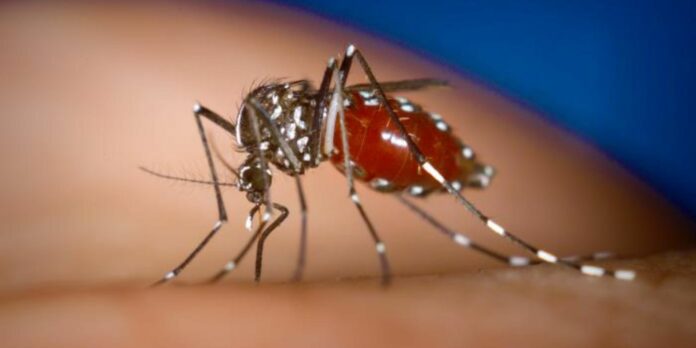April 10, Colombo (LNW): Medical experts have issued a stark warning following a notable increase in Chikungunya cases, with authorities expressing growing concern over the potential for wider outbreaks if mosquito control efforts are not strengthened.
The mosquito-borne virus, which can cause debilitating symptoms and long-term health complications, has seen a resurgence in several parts of Sri Lanka, according to health officials.
Dr Kumudu Weerakoon, a senior medical officer with expertise in community health, stated that Chikungunya is not a new threat to the country.
Although the virus was first identified in Tanzania in 1956, Sri Lanka encountered its initial cases as early as 1960. Since then, it has resurfaced sporadically, typically in tandem with lapses in vector control measures.
In a recent update, Dr Weerakoon revealed that 190 suspected cases had been reported in recent days, of which 65 have been clinically confirmed.
This uptick has prompted increased surveillance, particularly in areas already vulnerable to mosquito-borne illnesses such as dengue.
Globally, Chikungunya has been reported in 115 countries, reinforcing the need for coordinated responses and proactive public health campaigns. Dr Weerakoon noted that symptoms typically include a high fever lasting several days, pronounced joint pain, discolouration of the extremities, skin rashes, and general fatigue.
In many cases, the joint pain can linger for weeks or even months, making routine activities difficult and severely impacting quality of life.
She further underscored the importance of eliminating mosquito breeding grounds, noting that both Chikungunya and dengue share the same vector—Aedes mosquitoes.
In a recent survey of breeding sites, 75 per cent were found outdoors, with a significant number located near schools (53 per cent) and in outlying regional areas (33 per cent).
These findings suggest a pressing need for better environmental management and increased awareness, particularly in educational and rural settings.
The Health Promotion Bureau has urged the public to take the situation seriously and to seek medical attention promptly if symptoms arise. Quick diagnosis and care not only improve individual outcomes but also help prevent the spread of the virus within communities.
Efforts are now being scaled up by regional health authorities to launch targeted clean-up drives, improve waste management systems, and encourage household vigilance.
Authorities are also exploring partnerships with local councils and schools to ensure consistent monitoring and education on vector control.
Public health officials have called on citizens to eliminate stagnant water from their premises, ensure proper waste disposal, and cooperate with fumigation efforts being carried out in high-risk areas.
With the monsoon season approaching, the need for collective action to prevent a larger outbreak has never been more urgent.

